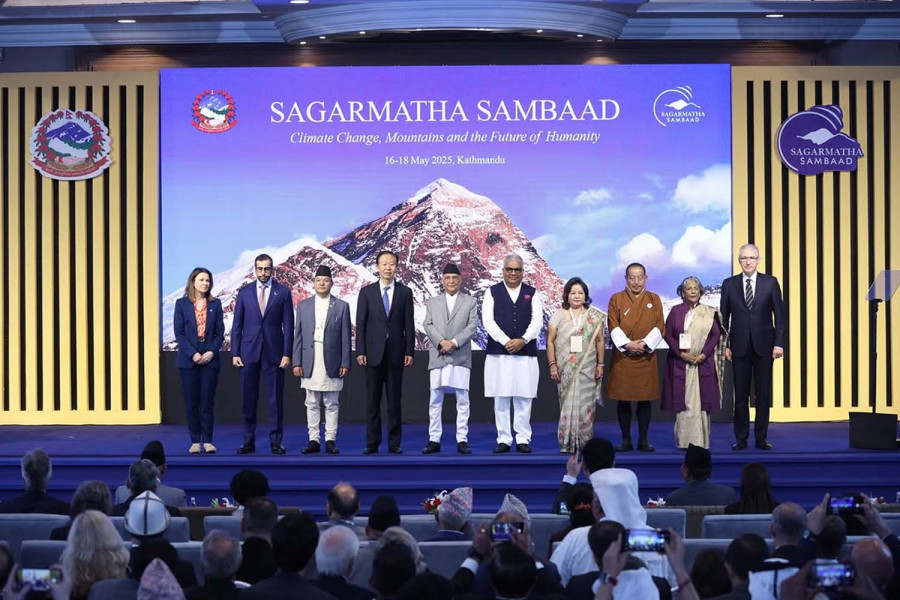Editorial
A decent start
Future governments must nurture this sapling of global dialogue the Oli government has planted.
The first edition of Nepal’s flagship forum for global dialogue, the Sagarmatha Sambaad (May 16-18), was a mixed bag. But we would like to believe there were more positives than negatives for Nepal, its host. As many commentators have pointed out, the biggest drawback of the inaugural event was the lack of high-level political participation from abroad: None of the heads of state or government could be brought to Kathmandu. Perhaps this represented Nepal’s poor diplomatic outreach. In the absence of these political decision-makers from abroad, the argument goes, the stature of the Sambaad has shrunk. Yet there is also another way of looking at this. Yes, a few top international leaders could have attended to give the event a higher international profile. Yet this is just the first iteration of the Sambaad and the lessons from it will prove invaluable in the organisation of future editions (hopefully featuring more high-profile attendees). Nor is it entirely fair to compare the Sambaad with similar events like the Raisina Dialogue (India), the Shangri-la Dialogue (Singapore) or the Munich Security Conference (Germany). Compared to Nepal, the host countries of these conferences have significantly more diplomatic and economic clout that they can leverage to invite high-level delegates from around the world.
Another good thing about the inaugural edition of the Sambaad was its theme: “Climate change, mountains and the future of humanity”. As one of the developing countries most vulnerable to climate change—but one which makes nearly zero contribution to global warming—the platform offered Nepal an opportunity to make its case before nearly 200 foreign delegates. This was astute diplomacy. Prime Minister KP Sharma Oli thus deserves credit for daring to take this bold step. He had tried to convene the first edition of the Sambaad during his previous term as government head. But the event planned for 2020 had to be postponed due to the Covid-19 outbreak. Oli has dusted off the idea and made it happen in 2025. So was the first edition a resounding success? Absolutely not. There were hiccups. Besides the paucity of high-level international delegates, there were also multiple management problems. One reason for this could be that instead of delegating event-hosting to a credible agency or organisation—as happens in the case of all three examples cited above—the Prime Minister’s Office took up the whole burden. The absence of clear division of labour and responsibilities created confusion.
But we believe it is also vital to think long-term. A decent start has been made in the realisation of Nepal’s old dream of hosting a top-notch global conclave. Now the country should look to build on it. Again, as international examples suggest, the success of such gatherings depends on the host government’s ability to work with think tanks and private sector organisations. An organisation like the Policy Research Institute, a Nepal government-affiliated think tank, for instance, can be given the responsibility of organising future Sambaad editions, with state agencies and other actors providing back-up support. Yet continue, it must; the event should not be a victim of domestic political calculations. It is incumbent upon all future governments to nurture this sapling of global dialogue the Oli government has planted.




 20.9°C Kathmandu
20.9°C Kathmandu














